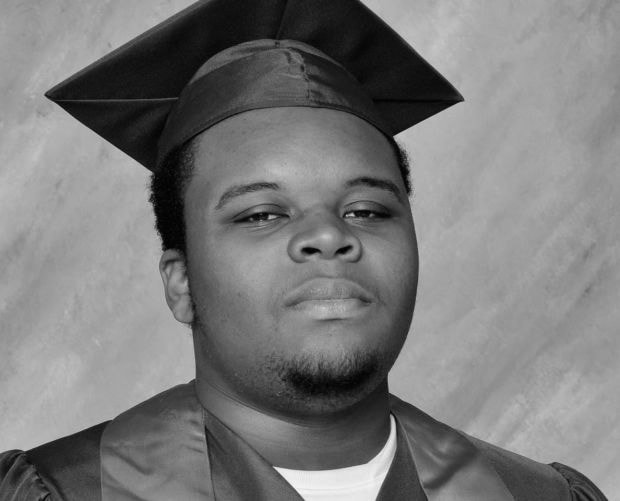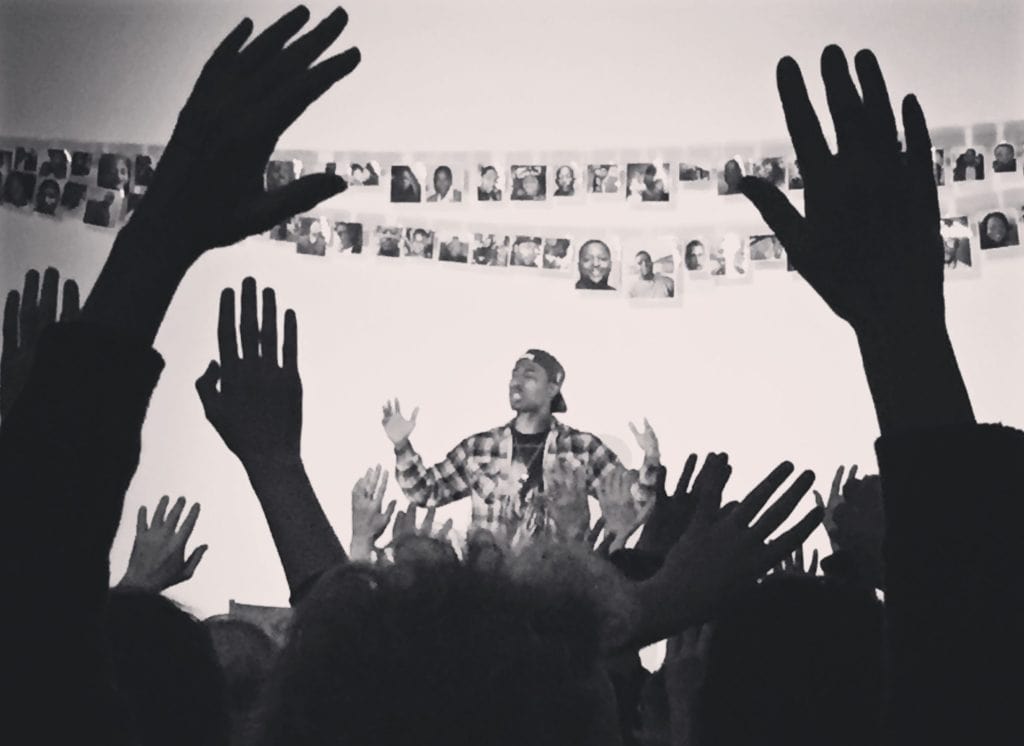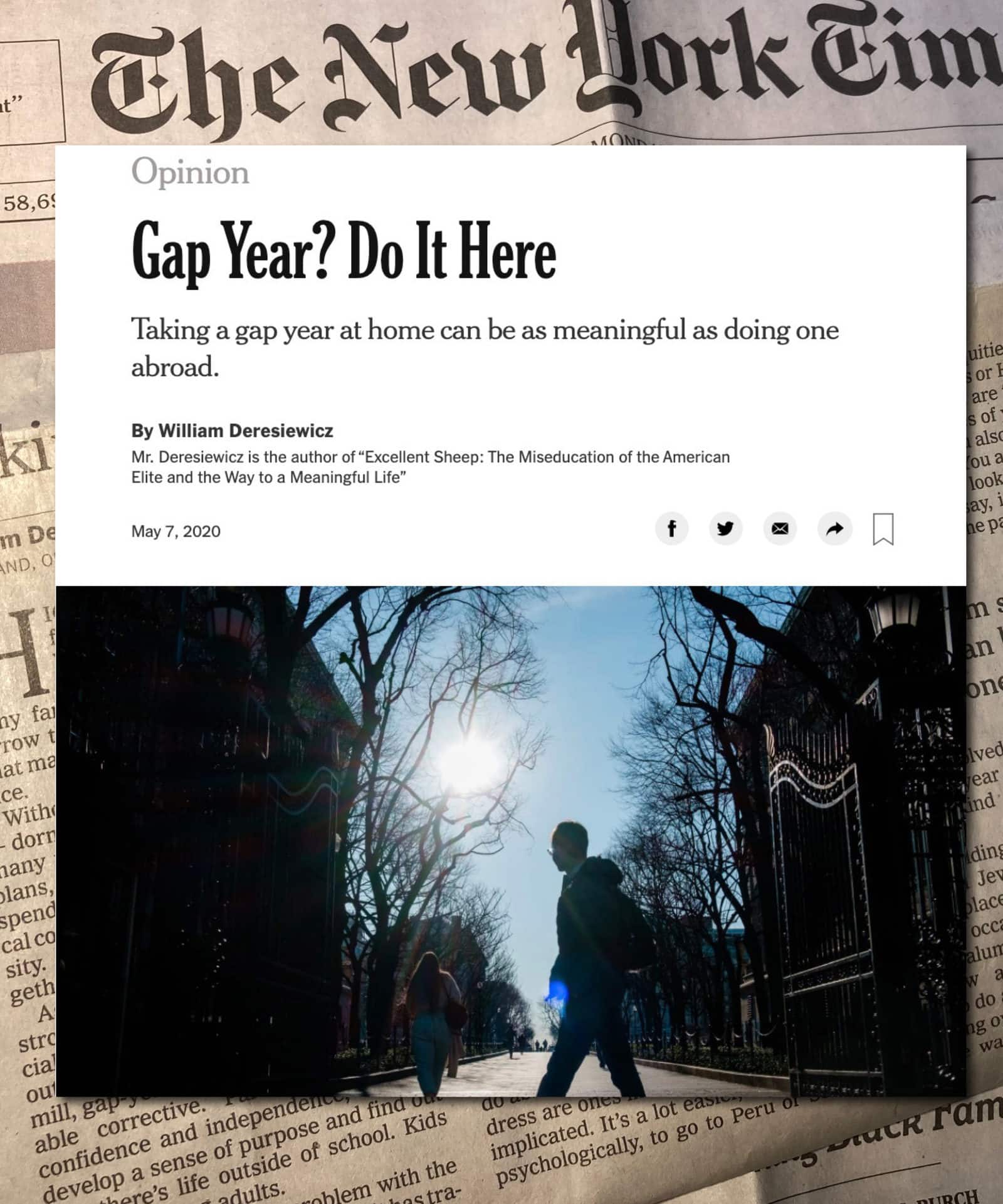“Hands up!”, commanded Tyharra Cozier, a young African-American woman.
“Don’t Shoot!” I and about a hundred other people – mostly white and middle-aged – shouted in response.
We were all being held captive, under arrest – by Tyharra’s captivating and arresting performance. Because that’s what it was; Tyharra was an actor and all of us with our hands held high were her audience. She was performing a monologue called “How I Feel,” written by Dennis A. Allen II. It was the last act of the fittingly named play “Hands Up: 7 Playwrights, 7 Testaments,” a collection of seven monologues which were created to explore the African American authors’ feelings of well-being – or lack of – in America in the wake of the shooting of Michael Brown in Ferguson, Missouri.

The murder of Michael Brown, a young Black man who was shot by police in Ferguson, Missouri in 2014, was the impetus for the creation of Hands Up!
Michael Brown’s death pervaded the play. His portrait hung visibly behind the stage alongside those of Sandra Bland, Trayvon Martin, and dozens of other victims of racist police brutality. So, as the rest of the audience and I threw up our hands and yelled “Don’t Shoot!”, it was impossible not to see the faces of people who had at one time shouted the same words but to no avail.
Tyharra emphasized, “I’d like you ALL to keep your hands up with me. Some of you won’t, but try. I’m asking you to be uncomfortable with me for a moment. For this moment in time let’s attempt to experience the same experience together.”
I had come to the play with Tivnu as part of an Educational Exploration in order to learn about, understand, and empathize with “the Black experience”. But to actually experience it – or at east the discomfort that is such a core part of it – myself? Wasn’t that a bit more than I bargained for? Then I came to my senses: could I really equate holding one’s hands up for seven minutes with the lifelong struggle that is overcoming the physical, emotional, and mental tolls of racism? If I had enjoyed the entire play without experiencing even a tinge of discomfort, could I truthfully say that I had learned about, understood, or, least of all, empathized with even a fraction of “the Black experience”? The answer, of course, is no, as Tyharra affirmed later in the play when she yelled at the audience, “F**k you for not feeling what I feel!” She was right; no matter how long I kept my hands in the air, I could not come near to feeling what she felt.
Tyharra continued: There are some people… that believe that it is MY responsibility through “proper living” to combat white supremacist thinking… Since we’re on this magical mystical fantasy ride let’s imagine together. Imagine a world where every single Black or brown American only wore their Sunday best; all prayed to a Christian god; never said a cuss word; didn’t do any drugs, and broke no laws… All worked… and all were 100% faithfully monogamous. All graduated high school… and at the very least had a bachelor’s degree… Imagine if Black people were morally, spiritually and financially better than any and every White person that has ever walked the earth. Perfect. Better than any human being has ever been…Then and only then will White people see us as valuable human beings.
According to Tyharra, it often feels like the only way for her as a person of color to survive white supremacy is to keep up the appearance of “proper living,” just like the only way for her to survive an encounter with white police officers is to keep up her hands. In my opinion, the two are one and the same. Both “proper living” and holding up one’s hands are an exaggerated attempt to convince the world that you are not a threat. And after seven minutes of holding up my hands, I cannot imagine how exhausting a lifetime of that would be.

Credit: August Wilson Red Door Project
So, if not the actual threat of being shot, what compelled the audience to respect Tyharra’s request and actually keep our hands up for seven long, grueling minutes? (It’s not just me that was struggling to do it, right?) Empathy? Solidarity? Optimism? Possibly, but the main thing I remember feeling at the time was the weight of all the eyes: the eyes of the other audience members sitting around me, the eyes of Tyharra standing in front of me, and the eyes of Michael Brown, Sandra Bland, Trayvon Martin, and a dozen others standing behind her. Frankly, and as ignoble as it is, with all those people watching, I really just didn’t want to embarrass myself by being the first person to drop their hands. In that moment, I experienced the importance of accountability – a healthy combination of encouragement and peer pressure – if not for which, I know my hands would have fallen in the first minute or two.
That’s the main reason I chose to participate in Tivnu for my gap year. I know that if I spent my gap year without structure, accountable to only myself, I probably wouldn’t have the motivation to really put in the work to better either myself or the world – I wouldn’t be able to to lift my hands up, let alone keep them there. However, in a small community in which I feel very visible, in a structured program that gives me reasons to actually set my alarm in the morning, and when surrounded by individuals also dedicated to fighting the good fight, no matter what I promise to try to do – from examining and deconstructing my white privilege to building tiny homes three days a week to just simply flossing and brushing my teeth – I feel held accountable. I feel like I can hold up my hands for a while longer.
To learn more about Hands Up! and the August Wilson Red Door Project, check out their website.
Written by Tamir Eisenbach-Budner, Tivnu Gap Year Participant 2018-2019. Tamir interns at Sisters of the Road and Tivnu Construction.
Follow Us
Sign Up For Updates
Taking a gap year in the US can be as meaningful as doing one abroad.
 Featured in The New York Times
Featured in The New York Times